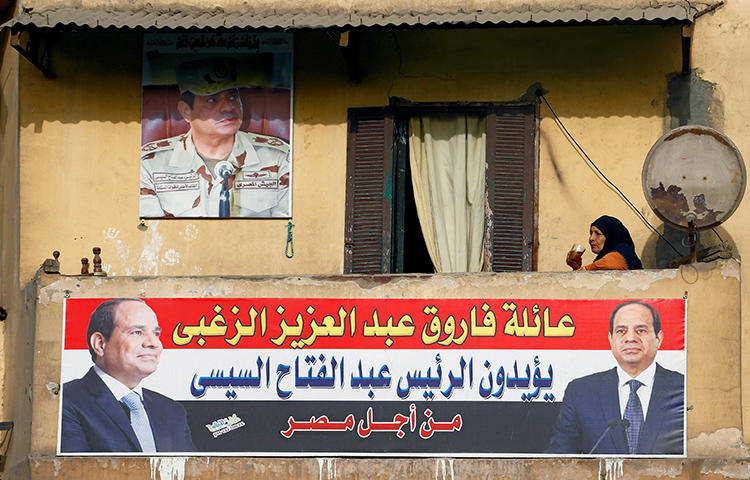Alwaght- Egyptian journalist Moataz Wadnan has been disappeared since Friday when security forces detained him and three of his relatives at a checkpoint in near Cairo.
Police on February 16 arrested Wadnan, who works as a reporter for the Istanbul-based Huffington Post Arabi, after conducting an interview with an opposition figure, Hisham Genena, a campaign aide to ex-general and presidential candidate Sami Anan who was also detained last week for telling Wadnan that Anan possesses “dangerous” secret documents about the violent events since the 2011 uprising that toppled President Hosni Mubarak.
Egyptian authorities released Wadnan's relatives the same day, and transferred the journalist to the Fifth Settlement Police Station pending interrogation in front of State Security prosecutors, according to the same reports.
The Egyptian authorities practices of arresting, hiding, and intimidating journalists undercuts the already slim chances of having free elections.
Anan, like all other serious candidates, had withdrawn his bid for the presidency, reportedly under pressure from the government of President Abdel Fattah al-Sisi. The former general, too, was subsequently arrested for not seeking the military’s permission prior to announcing his run.
Wadnan had quoted Genena in the interview, published on 11 February, that a "sovereign agency" within the Egyptian security apparatus is leading a violent crackdown against dissidents.
On Monday, Wadnan’s lawyer Ezzat Ghoneim told Mada Masr news website that his client's whereabouts have become unknown.
"Journalism has become a crime” in Egypt, Ghoneim told Al Jazeera on Saturday, adding "Moataz is detained for no reason.”
The Committee to Protect Journalists (CPJ), a New York-based watchdog, voiced concern over Wadnan’s disappearance, accusing the Egyptian government of efforts to censor criticism ahead of next month’s presidential elections.
"The Egyptian authorities' practices of arresting, hiding, and intimidating journalists undercuts the already slim chances of having free elections," CPJ's Middle East and North Africa Program Coordinator Sherif Mansour, said in a statement.
"The authorities should immediately release Moataz Wadnan, and stop their absurd attempts to silence coverage that does not align with the official narrative."



























